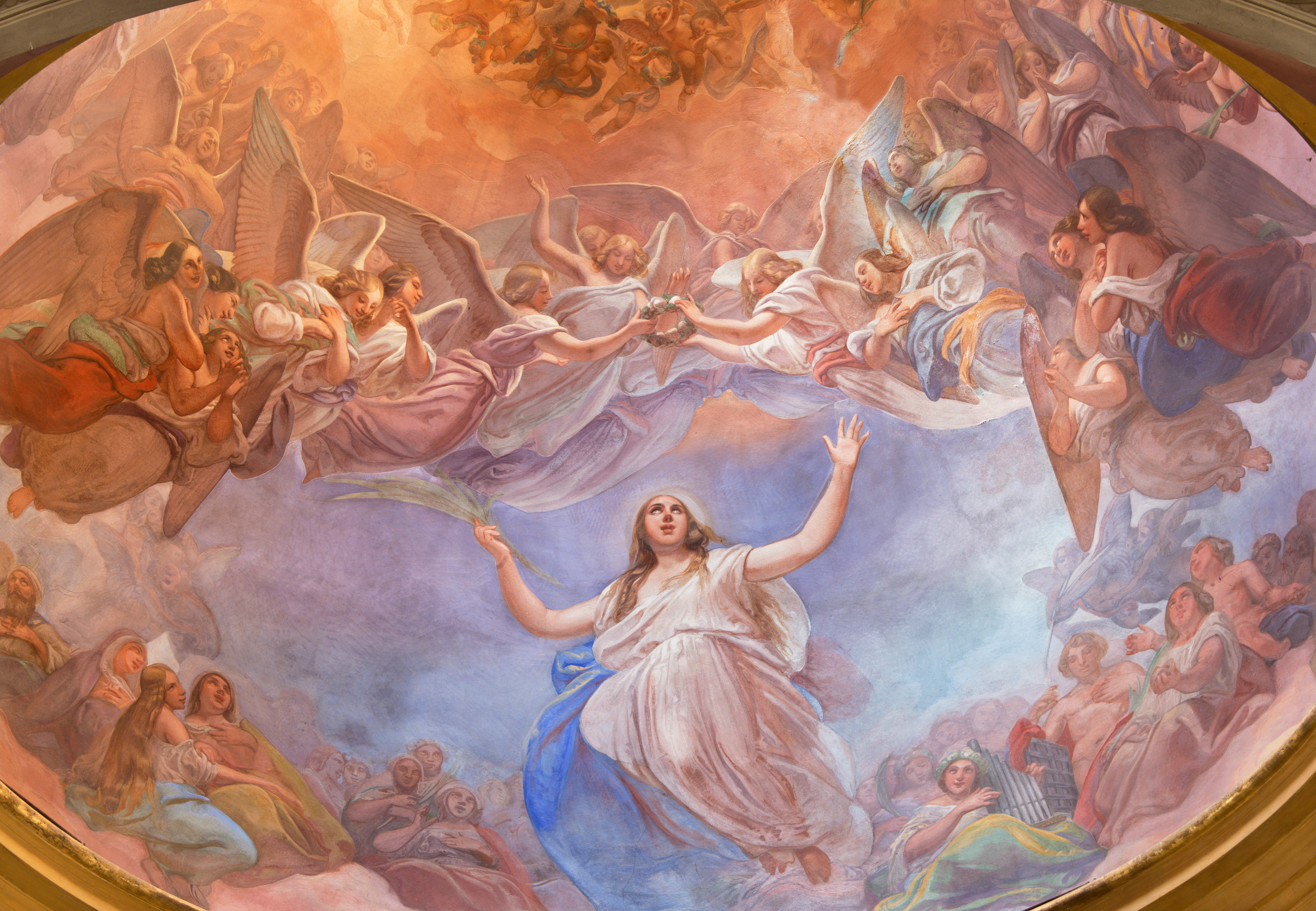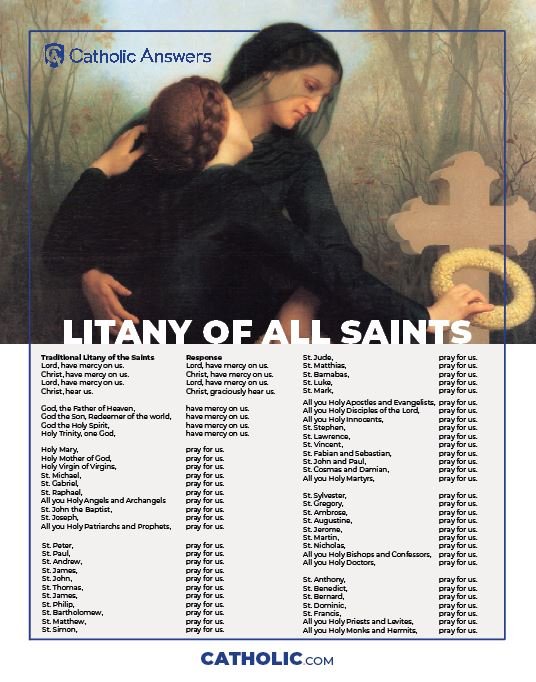What We Mean By "Saint"

Sanctus and Hagios
The word saint comes from the Latin word sanctus, which means “holy one.” The Greek equivalent hagios (which means “sanctified,” “set apart,” or “holy”) is used in a variety of ways in the Bible—both the Greek version of the Old Testament (known as the Septuagint) and the New Testament. For example,
- Christians on earth are “saints” (2 Cor. 1:1, Eph. 1:1, Col. 1:2, Phil.1:1, Rev. 5:8).
- The Israelites are “holy” (Lev. 20:26) and, therefore, are called “saints” (Ps. 34:9; Dan. 7:18, 8:24).
- Angels are called “holy ones” (Ps. 89:6; Dan. 4:13, 17, 23, 8:13).
- A person of notable holiness is called “holy” or “saint” (Isa. 4:3-4, Matt. 27:52-53).
- Jesus is the “Holy One” of God (Mark 1:24, Luke 4:34, John 6:67-69).
- God is the “Holy One of Israel” (Ps. 71:22, 78:41, 89:18; Isa. 1:4; Jer. 50:29).
Saints and the Catholic Church
The Catholic Church uses the term
saint in a few different ways, all of which have to do with those united to Christ. The most familiar use is with regard to those Christians who, according to the Catechism of the Catholic Church (CCC) in paragraph 2683, “have preceded us into the kingdom [of heaven]” and have their virtues publicly recognized and proclaimed when they are canonized “as saints.”
But the Church also extends application of the term
saint to every soul united to Christ in baptism, which includes Christians on earth, souls in purgatory, and those souls in heaven who haven’t been canonized. The Catechism explains in paragraph 1475:
In the communion of saints, a perennial link of charity exists among the faithful who have already reached their heavenly home, those who are expiating their sins in purgatory, and those who are still pilgrims on earth. Among them there is, too, an abundant exchange of all good things.
The
Catechism elsewhere states:
After confessing “the holy Catholic Church,” the Apostles’ Creed adds “the communion of saints.” In a certain sense this article is a further explanation of the preceding: “What is the Church if not the assembly of all the saints?” The communion of saints is the Church. . . . The term “communion of saints” therefore has two closely linked meanings: communion in holy things (sancta)” and “among holy persons (sancti) (948).
Holy One and Holy Ones
Since
saint means “holy one,” and since all baptized Christians are “holy persons” (sancti in Latin), set apart unto the Lord, it follows that all baptized Christians—whether on this side of the veil or the other—are “saints.”
Now, it’s true that Catholics don’t go around calling one another Saint So-and-So. The Church typically uses the term in a narrower and more formal way for those individual Christians who are perfected in the heavenly kingdom. Why is that?
Since the blessed in heaven are perfected in righteousness, they are “saints” in the fullest sense of the term. They are completely holy, perfected by God and separated unto him. Unlike us, their saintliness is not mixed with sin and disordered inclinations. Our saintly status is a share in part of the saintly status of those in heaven. This seems to be how St. Paul describes it in Colossians 1:12: “Giving thanks to the Father, who has qualified us to share in the inheritance of the saints in light.”
The Greek word for
share in this verse is meris, which literally means “part or portion.” It can mean to take part in the same amount, but it can also mean to take part in a lesser portion, as opposed to possessing in full. For example, Paul writes in 2 Corinthians 1:13-14, “I hope you will understand fully, as you have understood in part [Gk. merous], that you can be proud of us as we can be of you, on the day of the Lord Jesus.”
Just as here on earth, we know only in part but will know in full at the end of time, so too we share in part in the inheritance of the saints who dwell in heaven. Because of this difference and the unique status that the “saints in light” have, it’s fitting that Catholics honor them with the title
saint.
If you'd like to know more, order your copy of The Saints Pray For You today by Karlo Broussard!
Why do we kneel and pray before statues of Mary and other saints?
Free Prayer Sheet Download
Enjoy a free PDF download of The Litany of All Saints!
Recent Posts
-
What is the Role of Guardian Angels?
“Beside each believer stands an angel as protector and shepherd leading him to life.” This is how S …Dec 29th 2025 -
God Creates Out of Love
God creates, we believe, ex caritate—out of love. If we recall our image of Christianity as a refle …Dec 16th 2025 -
If We Just Love Jesus, Does It Really Matter Which Church We Go To?
When I was considering joining the Catholic Church, I sat down with some of my non-Catholic friends …Dec 12th 2025










